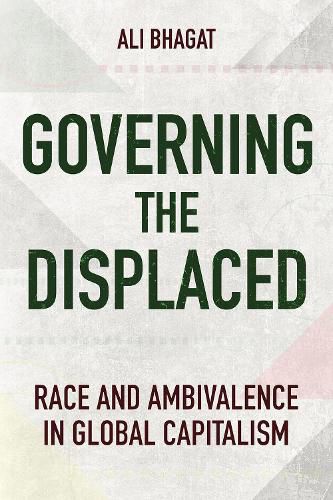Readings Newsletter
Become a Readings Member to make your shopping experience even easier.
Sign in or sign up for free!
You’re not far away from qualifying for FREE standard shipping within Australia
You’ve qualified for FREE standard shipping within Australia
The cart is loading…






Governing the Displaced answers a straightforward question: how are refugees governed under capitalism in this moment of heightened global displacement? To answer this question, Ali Bhagat takes a dual case study approach to explore three dimensions of refugee survival in Paris and Nairobi: shelter, work, and political belonging.
Bhagat's book makes sense of a global refugee regime along the contradictory fault lines of passive humanitarianism, violent exclusion, and organized abandonment in the European Union and East Africa.
Governing the Displaced highlights the interrelated and overlapping features of refugee governance and survival in these seemingly disparate places. In its intersectional engagement with theories of racial capitalism with respect to right-wing populism, labor politics, and the everyday forms of exclusion, the book is a timely and necessary contribution to the field of migration studies and to political economy.
$9.00 standard shipping within Australia
FREE standard shipping within Australia for orders over $100.00
Express & International shipping calculated at checkout
Governing the Displaced answers a straightforward question: how are refugees governed under capitalism in this moment of heightened global displacement? To answer this question, Ali Bhagat takes a dual case study approach to explore three dimensions of refugee survival in Paris and Nairobi: shelter, work, and political belonging.
Bhagat's book makes sense of a global refugee regime along the contradictory fault lines of passive humanitarianism, violent exclusion, and organized abandonment in the European Union and East Africa.
Governing the Displaced highlights the interrelated and overlapping features of refugee governance and survival in these seemingly disparate places. In its intersectional engagement with theories of racial capitalism with respect to right-wing populism, labor politics, and the everyday forms of exclusion, the book is a timely and necessary contribution to the field of migration studies and to political economy.